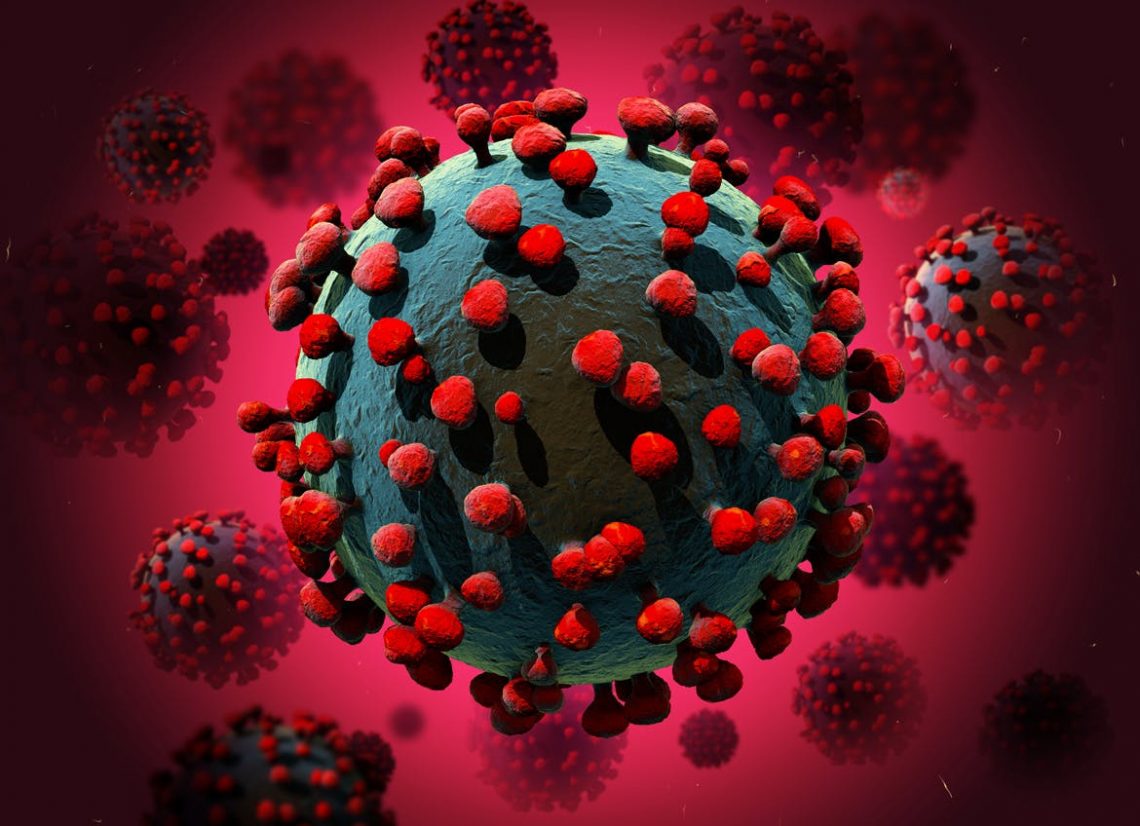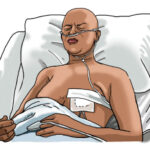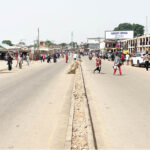Since the outbreak of the coronavirus worldwide, some people have died of the disease while others have survived it.
Although Nigeria continues to witness an increasing number of cases of the coronavirus, it has also recorded patients’ recovery and discharge, while others are still receiving treatment at isolation centres.
As of Monday, Nigeria had 2,802 confirmed cases of the new COVID-19, with 417 discharges, and 93 deaths.
Some people who survived the virus shared their experiences with our reporters:
Dr Otobong Asuquo, an Obstetrician and Gynaecologist (and Akwa Ibom’s index case) Ememobong Udofa, a pharmacist, and Dr Ekaette Udoafa were recently discharged from the treatment centre in the state.
They all contracted the virus while serving as volunteers during a free medical outreach between 9th and 13th March 2020, organised by Ibesikpo Asutan indigenes based in the United States of America.
Dr Asuquo said he was reading about the virus, and watching out for symptoms when he learnt that one of the US-based nurses who were part of the medical mission had tested positive for the virus on arrival in the US.
He said he isolated himself for 10 days when he started exhibiting the symptoms, until when the government came to move him to the isolation centre in Ibom Speciality Hospital, Uyo.
“Being the first positive index case in Akwa Ibom State, as a human, I was afraid I was going to die. COVID-19 was deadly, killing people in the United States, China and all over the world.
“I got a call in the morning of 2nd April that the ambulance would come for me. What really helped me was that I am a doctor, and I have been having ambulances coming to pick me at home to work. So people in the environment did not really know. They thought it was the normal way; may be an ambulance had come to pick me for surgery.”
He added that his determination to survive, and the fear of the possible abandonment of his wife and children fuelled his desire to live, adding that the low mortality rate of the disease in Nigeria as at the time of his illness, gave him hope and the courage to fight for his life.
Recounting his survival experience, Mr Ememobong Udofa, a pharmacist said he noticed that he had headaches, and lost his sense of taste and smell a week after being part of the medical outreach.
He explained that he adopted home remedies like the use of steam inhalation and vitamin C to build his immunity, before he was moved to the isolation centre when his test result came back positive.
He stated that though he was afraid, the encouragement from his family and friends gave him the courage to overcome the disease.
Another survivor, Dr Ekaette Udoafa, whose son also tested positive to COVID-19, said her confidence in God gave her hope that she would not die of the disease.
She said she treated malaria that kept reoccurring, and lost appetite, her sense of smell, and was sneezing continuously, a situation that made her believe she was infected.
“Immediately the result came out, the Head of Public Health in Akwa Ibom State called me and said, ‘The result is out, you are positive and your son is positive’. At this time, my mind was already set and the fear was gone”.
A Nigerian who returned from the United Kingdom and was tested positive for COVID-19, Oluwaseun Ayodeji Osowobi, the Executive Director, Stand to End Rape said she attended a Commonwealth event in the UK and fell ill. She self-isolated and tested positive some days after when her sample was collected.
An ambulance came to evacuate her to the isolation centre at the Infectious Diseases Hospital, Yaba, Lagos.
Osowobi who is a TIME 100 NEXT Honouree explained, “The next days were tough. No appetite. The nausea, vomit and stooling was unbearable. I am a blood type A and COVID-19 dealt with me. I thought I was going to die and contemplated a succession plan for my organisation.”
She said she was on medications daily. “Sometimes, I would take eight tablets in the morning, 13 tablets in the afternoon,10 at night. My system threw everything out. Water, food, soap and all disgusted me. But I would look at the wall and force myself to stay hydrated — drank ORS.”
She was happy when her result came out negative but was worried she wasn’t discharged. “On the third day, doctors said, “well, we worked with the information we had of you testing negative, but one result came back positive. You will stay a few more days. You know we take nose, mouth and sputum samples.”
She continued her medication and thereafter tested negative. “Today, I am proud to inform you that I murdered COVID-19 and have tested negative twice. I have been discharged,”
She encouraged people with COVID-19 symptoms to get tested, and advise the public to stop stigmatizing persons who tested positive to coronavirus disease.
“Coronavirus is not a death sentence. People can survive and I have,” she said.
Prof Maruf Adelekan, a Nigerian Consultant Psychiatrist in the UK, tested positive for COVID-19 on April 3 and spent eight days in hospital.
The Abeokuta indigene said he began to experience symptoms on March 24. He said he wasn’t sneezing, but had high temperature in the evenings. He also experienced fatigue and loss of appetite.
“I wasn’t coughing at all but I noticed if I try to take a deep breath, I have this bad pain, so I could not take a deep breath anymore. That went on for almost a week and I was taking only paracetamol, I was trying to get to the A & E but they were not admitting. It got to a stage I was managing it at home with my wife and I was taking paracetamol and all sorts of combination including turmeric, black seed oil and I was sent prescription, which included chloroquine as well as azythromycin.
He was later admitted at the hospital and tested positive to the disease. “With my breathing problem, I was placed on oxygen and I was moved to the COVID-19 ward when my result came back positive. I continued on oxygen from 15 litres to about 50 litres.”
When my oxygen level improved. I was taken to the normal COVID-19 ward and after two days, I felt better and was discharged.”
He said government should identify people with underlying health conditions and who are 60 years old , and give them a compulsory 12 weeks to stay at home.
Israel Ayegba Ebije is a Nigerian on a study programme in Canada. He said : “The experience of going through with the shallow stinging coughing sessions, the loss of smell, stuffed and painful lungs, difficulty in breathing, loss of appetite, fever, evil dreams and news of deaths across the globe will make 2020 a year I will not forget in a hurry.”
Ebije said he woke one morning feeling pangs of pain in his stomach, and recognized the discomfort as ulcer. Having suffered several years from the condition he took his medicines but got no relief .
Israel was soon diagnosed with coronavirus when he got to the hospital in Montreal, Canada. “The news was handed to me like a death sentence. Within seconds I remembered how I refused to wear a face mask, how I refused social distancing, how I believed the virus will have nothing to do with a Black man like me. Suddenly, my entire life flashed before my eyes.
He said he was placed on azithromycin for the lung infection for five days, adding that he, however, found a way to steam with garlic, ginger and lime four times daily (10 minutes per session).
He got enough relief after five days in isolation. The healing process was in phases and slow – it took 14 days before I could bounce back. Sadly, not many are as lucky as I am,” he said.
Israel is of the opinion that the government shouldn’t have eased the lockdown just yet. “I know the government did not offer a financial safety net to cushion the negative effect of the lockdown, that’s not enough reason to hit the streets carelessly as cases are on the rise every day.”
He added, “Government should embark on sensitisation using mobile public address systems to draw the attention of Nigerians on safety rules, provide PPEs like face masks, hand gloves and hand sanitizers as they prepare to hit the street.
“Average Nigerians on their part must see the easing of the lockdown from a sober perspective. They should apply caution just the way they would if they were to walk past a sleeping hungry lion. It does not call for celebration – some wicked people are going to make sure they infect the careless ones on the street,” he advised.

 Join Daily Trust WhatsApp Community For Quick Access To News and Happenings Around You.
Join Daily Trust WhatsApp Community For Quick Access To News and Happenings Around You.


